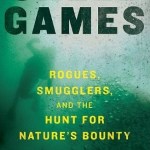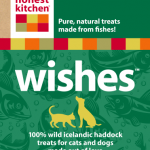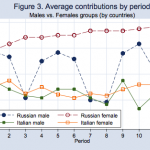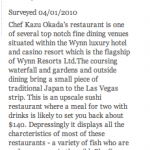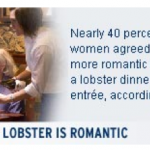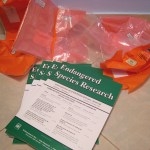
It takes only one rogue in a million to wipe out a geoduck population, which becomes obvious in Craig Welch's newest book Shell Games. The illegal geoduck trade in the Puget Sound and the wildlife officers who track them make for an action packed story that brings the otherwise humble shellfish into rank with the excitement, profitability, and danger of drugs or arms dealings. Wildlife poaching and the markets that fuel it provide for a tale of action and tale of woe. The book is ripe for a screenplay (recall Adaptation, Charlie Kaufman's film about The Orchid Thief) but, until then, read…
Here at Guilty Planet, every day is Earth Day. So on Earth Day, I thought it might be fun to check out a few self-proclaimed eco-friendly products (the Rainforest Action Network also has a take on corporate Earth Day sponsorship).
How about HINT water. I think I've seen it sold in Starbucks. Here's a letter I received from them on World Water Day:
Hi Jennifer - Thought this might make a fun post for World Water Day.
Today, March 22, organizations across the world will spread the importance of safe and clean water for World Water Day. Since 1993, groups have been fighting to clean up the…
Sometimes, something makes you stop and give pause to modernity. Or humanity. Or both. I have had a few such moments lately, like when I saw one of these Mobile Gyms in Vancouver for the first time the other day. Talk about a band-aid on a bullet wound:
And then I came across a book to read so you can talk about books you haven't read:
This Office Depot advertisement is shockingly perverse, given how many small stationary businesses it has probably put out of business:
And this was no biggie, except that it is posted on the door of a public library in Aiken, South Carolina:
And I'll…
You know it's been a while when you've forgotten your log in information for your blog. My habitual apologies for the long silence. A lot has happened lately so let's get to it:
--CITES a Bust for Marine Life (Mar. 25): At the CITES meetings held in late March in Doha, there were winners and there were losers, except in the marine environment, where there were only losers. Opposition by Japan, China, and their allies led to the defeat of every proposal to give CITES protection to vulnerable marine species including hammerhead sharks, whitetip sharks, porbeagle sharks, spiny dogfish sharks…
The UN has rejected the proposal that Atlantic bluefin tuna be listed by the Convention on International Trade in Endangered Species, or CITES, which is currently in session.
CITES regulates the international trade of threatened species. All imports, exports and re-exports of species included in CITES must be authorized by a licensing system that is administered by the individual parties of the convention.
Japan, which imports 80 percent of Atlantic bluefin and has led the opposition to the ban, reiterated its arguments that CITES should have no role in regulating tuna and other marine…
Bluewashing, a phenomenon I first described in this article about Al Gore getting hammered for eating sea bass, has made it in Schott's Vocab at the New York Times. The confusion involved in seafood consumer campaigns was also recently highlighted by Marc -- Mental Masala at The Ethicurean and also by Frank Nelson at Miller-McCune. Nelson points out:
While the influence of consumers alone may be open to question, many believe such campaigns are a vital first step, seeding the idea of change and influencing those higher up the decision-making chain, such as restaurant chefs and wholesale…
In addition to their notorious beauty, there could be another reason to mail-order a Russian bride. In a study that compared donations to a public goods game by Russian and Italian men and women, Russian females were constantly and, more interesting, increasingly cooperative.
The experiment involved 12 Russians and 12 Italians, made up equally of both genders, who played a public goods game on a computer. Each player started every new round with 10 'currency units' -- which the experimenters would then translate into extra credit in their course. Players have choice of donating none, a…
So much of what the scientists do is less relevant than it could be. This was the motivation behind the theme at the 2010 AAAS annual meeting, Bridging Science and Society.
Our panel discussed non-regulatory means of enhancing cooperation - namely through reputation and shame. Ralf Sommerfeld, a recent graduate who worked with the Max Planck Institute, presented several of his new game theoretical studies showing that gossip and reputation can lead to increases in overall cooperation [1, 2]. This is the theory that underpinned my presentation proposing that we migrate away from guilt-based…
The jellyfish burger digital artist Dave Beck and I created has won an honorable mention award in the illustration section the National Science Foundation Visualization Challenge and was also featured in the New York Times. Watch for the rubbery future of seafood coming to this week's issue of Science, too. And be sure to check out the other winners, too.
Vertical agitation meets shame in Fish2Fork, a new seafood conservation effort led by Charles Clover (author of End of the Line), which seeks to highlight which restaurants are best and worst when it comes to the seafood they sell. The focus on restaurants is a great move and I particularly like how Fish2Fork highlights the 'top 10' and 'bottom 10' restaurants.
As a quibble, I wish the "We say..." bit on Fish2Fork was a little less whimsical and the main reasons for the negative (or positive) rating were right up top. For instance, Okada, a sushi restaurant in Las Vegas, sells bluefin tuna…
To make a real difference, we're going to have to change patterns of consumption at levels higher than just households. This vertical agitation can take lots of different forms, but I want to highlight some of the great work being done academically and on the ground. Last year, an article in the International Zoo Yearbook by Heather Koldewey and two colleagues pointed out that zoos and aquariums should be leading the way in the push for sustainable seafood. Indeed, as the authors, point out, some already are.
Chicago's Shedd Aquarium, for instance, has teamed up with a culinary school to…
Almost as soon as you commit yourself to caring about the planet (or anything else), you commit yourself to a lifetime of disappointment (but also infinite room for improvement). As proof, I present news I received in just the last 24 hours specifically related to my work. I am not even talking about the 200,000 potential Haitian earthquake victims, health care and the Massachusetts election, or the use of drones in the military -- I'm merely referring to some back burner conservation news:
1) The UK's Chief Scientific Advisor, John Beddington, is opposing plans to create the world's…
Bluewashing. It's everywhere. In his article Beware of 'bluewash': Which fish should you buy? Nic Fleming covered our research on confusing seafood eco-labels in this week's NewScientist.
In addition to the dangers of seeming eco-friendly, consumers are also up against an industry very set on convincing consumers seafood is healthy. Earlier this week, Dr. Melina Jampolis, the CNN diet and fitness expert, got the question: Is farm-raised salmon as healthy as wild? She consulted a senior vice president for research of the Environmental Working Group, who said:
Eating farmed salmon…
According to some recent news sources, Somali piracy seems to have scared away foreign fishing vessels and have led to increased fish catches off northern Kenya.
Some scientists working in the region disagree with the piracy hypothesis, though, saying the increased catches have more to do with environmental changes associated with warmer waters that shifted to East Africa around the time of the reported catches.
Even if the piracy story is not true, it should be true. During WWII, when fishing boats and their crews were needed for the military rather than seafood markets, fishing after the…
I rolled in the New Year like most people -- in a gummy movie theatre watching Avatar. Caveat: go no further if you're worried about spoiling the plot (for a film that, like it or not, stands mostly on its technological innovations).
I don't want to seem like some Cameronophile. I found Avatar too long, for one (and, unlike Daniel Pauly, would never see it twice). It has the typical man vs. technology and man vs. nature themes of futuristic sci-fi. It did have some very cool marine influences (e.g. Christmas tree worms, anemones, comb jellies, hammerheads). But there was one very special…
Randy Olson, a scientist turned filmmaker (his film Flock of Dodos premiered at Tribeca and recently made the Smithsonian blog's list of ten great science films from the 2000s), opened up a new online journal this week where he explores the worlds of science and cinema called The Benshi. The title, as Olson explains, "refers to the tradition the Japanese developed with their silent films in which a humble, friendly little man -- 'the benshi' would stand beside the movie screen with a pointer and explain to the audience who the characters in the film were and what they were saying." Olson…
Need a New Year's resolution? Consider signing this seafood boycott.
It's that time of year where we welcome changes and commitment to ideals. New gym memberships. Re-committing to flossing every day. Giving up seafood...
My New Year's resolution was to finally write this blogpost compile a list of people that will boycott seafood (all farmed and wild caught marine and freshwater animals) for 2010 to:
1.demonstrate serious admonition for current fisheries practices (on the whole; we know there are a few localized examples of good management);
2.demonstrate strong support for seafood…
National Geographic has a series out about animals In the Womb and here is just one of the images: a representation of an eight-week dolphin fetus inside its mother's womb.
As part of an ideas series for 2010 at The Tyee, I wrote a piece on vertical agitation -- the idea that to make a real difference, you need to go straight to the top. Here are the first two paragraphs:
People who buy green products can apparently more easily justify subsequent greed, lying and stealing. A study, released earlier this year by researchers from the University of Toronto, showed that participants who were exposed to green products in a computer-simulated grocery store acted more generously in experiments that followed, but that participants who actually purchased green products…
After the post on Threatened Trees, a friend passed along this photo of Endangered Species Research journals, which come wrapped in heavy plastic (they are printed on acid-free paper, however).
